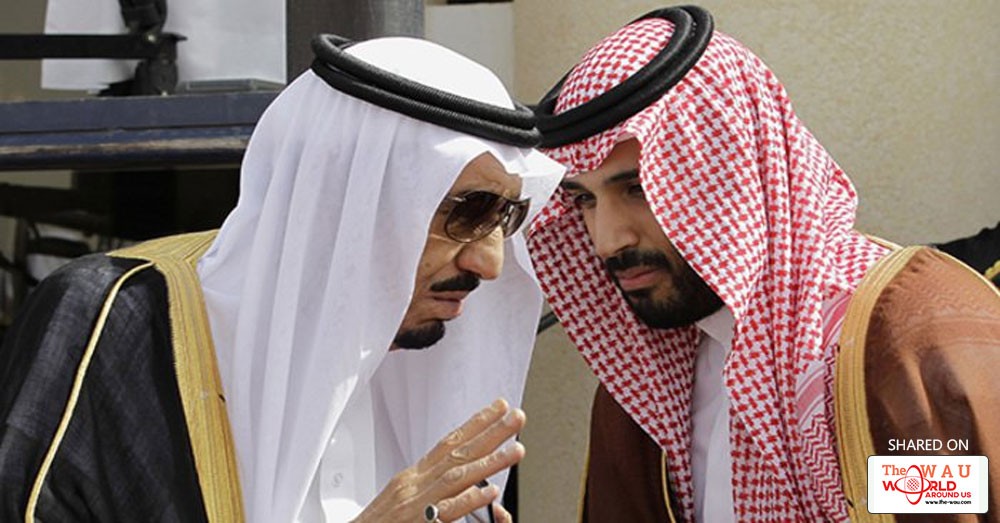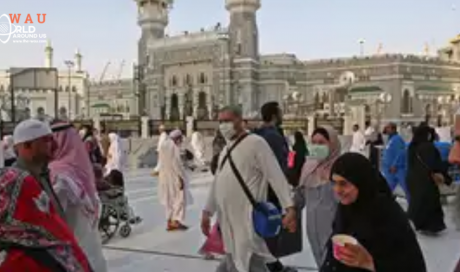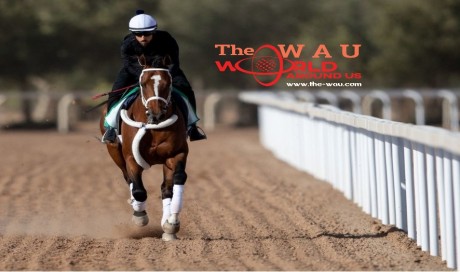All eyes have been on Saudi Arabia during the past week, as the kingdom has moved to crack down on corruption, amid escalating tensions with Iran and Lebanon.
Crown Prince Mohammed Bin Salman has led the shake up charge in the kingdom over the past couple years, with a series of landmark reforms. This week, as things came to a head, global attention focused on the prince's bold moves in response to corruption and regional rivals.
For those trying to catch up on recent events, we've outlined the major moments from the past few days you should be aware of.
1. The kingdom moved to crack down on corruption
Hours after King Salman issued a royal decree setting up a new committee tackling corruption last Saturday, it was revealed that several prominent Saudi princes, businessmen and ministers had been detained.
Custodian of the Two Holy Mosques receives former Lebanese Prime Minister.#SPAGOV pic.twitter.com/Ox8OPTSQew
— SPAENG (@Spa_Eng) November 6, 2017
According to reports, 11 princes, four minister and a number of former government ministers were arrested under orders from the committee, headed by the Crown Prince Mohammed. Prominent billionaire Prince Alwaleed bin Talal, known as the "richest Arab", was among those detained in the wide-reaching probe.
The committee also announced that it is re-examining the 2009 Jeddah floods and investigating the Middle East Respiratory Syndrome (MERS) virus, which emerged in Saudi Arabia in 2012.
A tweet sent out from the official English account of the Saudi Press Agency said: "fighting corruption is [the] state's approach to promoting integrity and advancing reform."
The kingdom's Attorney General Saud Al Mojeb further revealed on Thursday that more than $100 billion in funds may have been misused. He also said that 201 individuals are being held related to the ongoing investigations.
2. Lebanon's PM resigned in Riyadh
Lebanese Prime Minister Saad Hariri shocked his country last Saturday, announcing his resignation in Riyadh.
This is huge! According to alarabiyya, #Hariri has just resigned #Lebanon
— Halim Shebaya حليم شبيعة (@halimshebaya) November 4, 2017
Hariri accused the Lebanese political group Hezbollah, which is backed by Iran, of destabilizing his country and the region. The prime minister, who is a dual Saudi and Lebanese citizen, also voiced fears for his life, saying the political climate in Lebanon is similar to when his father, former Lebanese Prime Minister Rafic Hariri, was assassinated in 2005.
Hezbollah chief Hassan Nasrallah responded to Hariri's comments claiming Riyadh had "imposed" the decision on the prime minister.
"It is clear that the resignation was a Saudi decision that was imposed on Prime Minister Hariri. It was not his intention, not his wish, and not his decision," Nasrallah claimed.
Last year, Hariri brought together a unity cabinet that included Hezbollah ministers.
Since Hariri's resignation, there has been rampant speculation that he is being held in Saudi Arabia against his will. Members of his own political party were shocked by his decision to resign and have called for his immediate return to Lebanon.
Riyadh has completely denied the rumors, and France's foreign minister also said that his country believes Hariri is free to move around as he pleases. Hariri also took a brief trip to the UAE this week to meet with the nation's leaders. He also met with the Russian and Italian ambassadors to Saudi Arabia in Riyadh.
3. A missile attack targeted Riyadh
Hours after Hariri's resignation, Saudi Arabia's air defense forces intercepted and destroyed a ballistic missile northeast of the capital Riyadh. The missile, which was launched from Yemen, did not cause any major damage and was destroyed near Riyadh's King Khalid International Airport.
Ballistic missile was fired from Yemen. It was reportedly an Iranian Burkan 2H missile. https://t.co/1wQfzmdDn6
— Mohammed K. Alyahya (@7yhy) November 4, 2017
Yemen's Houthi militia quickly claimed responsibility for the attack.
"The capital cities of countries that continually shell us, targeting innocent civilians, will not be spared from our missiles," a spokesman for the group told Al Jazeera.
Saudi Arabia and its allies have been fighting the Iran-backed Houthis in Yemen since 2015.
Riyadh, however, linked the attack to Hezbollah and Iran, saying the Lebanese group was behind the missile launch.
"It was an Iranian missile, launched by Hezbollah, from territory occupied by the Houthis in Yemen," Foreign Minister Adel bin Ahmed al-Jubeir told CNN.
4. Saudi leaders called the missile attack an act of war by Iran and Lebanon
On Monday, Saudi Minister of Gulf Affairs Thamer al-Sabhan said that Riyadh will treat the government of Lebanon as if it has declared war on the kingdom.
Saudi Arabia says Lebanon had declared war against it because of attacks against the kingdom by Hezbollah https://t.co/CVlHkIStZS
— Ahmed Al Omran (@ahmed) November 6, 2017
"We will treat the government of Lebanon as a government declaring war on Saudi Arabia due to the aggression of Hezbollah," Saudi Minister of Gulf Affairs Thamer al-Sabhan said.
“We expect the Lebanese government to act to deter Hezbollah,” Sabhan said, referring to Hezbollah as "the party of Satan" and accusing the group of committing terrorist acts.
Al-Jubeir expressed the same sentiments, also linking Iran to the attack.
"We see this as an act of war," he said. "Iran can not lob missiles at Saudi cities and towns and expect us not to take steps."
Iran and Hezbollah have both denied their involvement.
5. Gulf nations told their citizens to leave Lebanon
In light of escalating tensions, Bahrain on Sunday ordered its citizens in Lebanon to leave the country, while also advising all nationals against visiting the Mediterranean nation.
BREAKING: Saudi Arabia orders its citizens out of Lebanon 'immediately'
— The Associated Press (@AP) November 9, 2017
"Due to the current conditions and developments in Lebanon, the foreign ministry asks citizens present in Lebanon to leave immediately and exercise extreme caution," Bahrain's foreign ministry said in a statement.
On Thursday, Saudi Arabia, the UAE and Kuwait also followed Bahrain in telling their citizens to "immediately" depart from Lebanon.
The news has led many Lebanese to fear impending conflict, however, Gulf nations made a similar move in early 2016. With Hariri's formation of a government later that year, tensions calmed and the advisory was lifted.
6. Trump threw his full support behind Saudi Arabia's leaders
U.S. President Donald Trump expressed his "great confidence" in the leadership of Crown Prince Mohammed and King Salman throughout the week.
....Some of those they are harshly treating have been “milking” their country for years!
— Donald J. Trump (@realDonaldTrump) November 6, 2017
Following the series of arrests in the kingdom, Trump tweeted his sentiments, saying that the Saudi leaders "know exactly what they are doing".
Furthermore, Trump suggested that some of those arrested had been exploiting the kingdom for years, saying they had been "milking their country".
In regards to the growing tensions with Iran, Trump also weighed in, showing his full support of his Saudi allies.
An official White House statement released on Wednesday said that the U.S. "welcomes the Kingdom of Saudi Arabia's statement exposing the Iranian regime's support for Houthi militias".
Continuing, the statement says that the United States condemns the actions of Iran and stands "with Saudi Arabia and all of our Gulf partners against the Iranian regime's aggression and blatant violations of international law".
Whether the simmering tensions will escalate further remains to be seen. For now, Saudi Arabia can be confident that it has the full backing of the U.S. in whatever next steps it takes.
Share This Post















